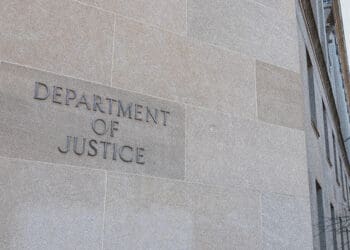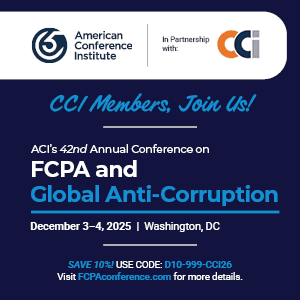With a substantial increase in remote working, lax cybersecurity measures for the sake of convenience and tens of millions of employees having been furloughed or laid off, it’s becoming critical for organizations to step up their protections of their trade secrets. Partners at Seyfarth Shaw LLP address the risks and difficulties companies face.
The COVID-19 pandemic has changed everything and affected everyone. In the workplace, most employees are now remote, and companies have had to quickly roll out new (and sometimes unsecure) technology for communication and data transfer. While remote work is designed to minimize the risk of virus transmission, it may increase the risk of trade secret misappropriation.
Additionally, while these changes to the workplace may increase the need for judicial relief to protect trade secrets, access to the court system has also changed. Though the situation is constantly evolving and highly localized, access to many state and federal courts remains limited. And even where access is assured, establishing an “emergency” for purposes of obtaining injunctive relief to prevent the disclosure of trade secrets may no longer be subject to the same pre-pandemic standard.
As the saying goes, “never let a good crisis go to waste.” While today’s business environment is fraught with new challenges, forward-looking companies should use the crisis to re-evaluate remote work, new technologies and other issues to position themselves to thrive as the economy rebounds.
“Reasonable Measures” to Protect Trade Secrets with a Remote Workforce
In the understandable rush to “flatten the curve” and keep employees and communities safe, many businesses have rushed to provide remote access to systems and data without simultaneously ensuring that new technologies are secure and implementing or strengthening remote-work policies and procedures. In fact, some companies are actually relaxing security standards in the name of convenience and efficiency. Unfortunately, some employees may take the opportunity to exploit this new arrangement for nefarious purposes, while others may be careless and expose confidential information without intending to, or without even realizing that they have done so. Either scenario can lead to equally bad business and competitive outcomes. It can also lead to bad legal outcomes, because the law requires parties to take “reasonable measures” to protect trade secrets — even during a pandemic. Reasonable measures should include the following:
Set Clear Expectations
Companies should clearly define what information is a trade secret and what actions are expected of employees and business partners who have access to such trade secrets. The best way to do so is through plainly worded policies, contracts and communications. In addition, marking documents “confidential” and implementing electronic pop-up reminders at login will act as constant reminders that the information being accessed is confidential and that there is a need to safeguard such information.
Training
A company can have all the policies in the world, but if its employees are not properly trained and reminded of these policies, they can be ineffective – not worth the paper they are written on. Particularly for workforces that are new to remote work and companies that are rolling out new technology, training is imperative. For example, remote employees should be trained generally on securing confidential information, but they also should be reminded about more basic, but often overlooked precautions, such as keeping sensitive documents out of camera view during videoconferencing, limiting printing as much as possible, not transferring data off of company servers and securely destroying/shredding any documents that may contain confidential information.
Monitoring
After setting expectations and training employees, companies must make sure they comply. Software can help companies monitor access and use of their systems and provide alerts when an employee engages in suspicious behavior, such as downloading, printing or e-mailing sensitive information without an obvious business justification.
Technical Infrastructure
Appropriate software solutions can not only help companies monitor data access and transfer, but also proactively protect company information. We recommend requiring two-factor authentication upon login to company systems, limiting access to sensitive data on a need-to-know basis, restricting transmission of data outside the company’s servers and systems and protecting the company from unauthorized access by third parties. And any companies that have relaxed security standards in the name of convenience and efficiency should take the opportunity now to strengthen them again.
If you are unsure whether your company is taking “reasonable measures” to protect its trade secrets, consider a trade secret audit by experienced counsel.
Enforcing Non-Competes During Times of High Unemployment
Tens of millions of people have lost their jobs since the pandemic began, with many more sure to follow. While non-competes are an important tool to protect trade secrets, many companies are asking whether they are enforceable against employees who have been laid off. According to the latest edition of Seyfarth’s 50 State Desktop Reference: What Businesses Need to Know about Non-Competes and Trade Secrets Law, 28 states permit enforcement of non-competes against discharged employees, three likely would do so, nine would not and in 10 states, the issue is unresolved. There are, of course, nuances in each state and in each case.
Another perhaps more appropriate question is whether companies should enforce non-competes and other restrictive covenants in the current climate. The answer to this question will largely depend on company culture and the facts of the case: The more egregious an employee’s conduct and the more serious the threat to a company’s trade secrets (or customer goodwill), the more likely a company will feel compelled to enforce a non-compete against a laid-off employee (and the more likely a court will treat it as an emergency under current circumstances).
Prior to taking any action against a departing employee during a time of high unemployment, however, companies should consider the actual risk that the former employee poses by working for a competitor, potential alternatives to litigation and the public relations ramifications of filing a lawsuit. Nevertheless, companies should not tolerate misappropriation of trade secrets under any circumstances and should take all action necessary to protect those rights.
Preparing for and Pursuing Trade Secret Litigation During COVID-19
While COVID-19-related court closings and filing limitations present a new obstacle to protecting trade secrets, this crisis does not give wayward employees and unscrupulous competitors carte blanche to steal trade secrets. On the contrary, even without ready access to courts, there are many steps employers can and should take to protect their trade secrets and preserve their rights. Indeed, many litigation and pre-litigation tasks do not require in-person contact or even court action to commence or complete.
Investigate
One of the first things a company should do when it suspects its trade secrets have been compromised is to conduct an investigation. Doing so will identify and ensure preservation of evidence, and it is critical to the ability to demonstrate the need for emergency injunctive relief. Because each case is fact-specific, there is no one-size-fits-all formula for conducting investigations of this nature. Typically, they include (1) a forensic examination of electronic devices and computer systems, (2) witness and exit interviews and (3) ongoing monitoring and surveillance. While COVID-19 has changed the physical location of employees, witnesses and electronic devices, a full investigation still can and should be conducted when a company has reason to believe its information has been misappropriated.
Cease-and-Desist Letters
A cease-and-desist letter puts the recipient on notice of potential claims and makes certain demands to avoid litigation. Some of these demands, however, may be considered “all bark and no bite” during the current situation because of the limited availability of emergency relief in court. To avoid any such misconceptions, consider acknowledging the situation and stating how the company intends to navigate it.
Stipulated Injunctions and Expedited Discovery
Sometimes, in trade secret and restrictive covenant litigation, the parties will agree to limited restrictions on the defendant (such as not to use or disclose confidential information, etc.) and ask the court to enter those restrictions as a stipulated injunction to avoid the time and expense of an evidentiary hearing. While the stipulated injunction is pending (or even if the parties cannot agree on one), the parties can agree to engage in limited expedited discovery. This may be a particularly appealing option during current conditions if the parties will agree to it.
Emergency Injunctive Relief
There may be situations where the only or best option is to go to court and request emergency injunctive relief. This is particularly the case when there is evidence of actual or threatened trade secret misappropriation. Litigants, however, should be mindful about what constitutes an “emergency” in today’s environment. As one court recently wrote in a scathing opinion not dealing with trade secret misappropriation: “The world is facing a real emergency. Plaintiff is not.” Another court bemoaned “the incorrect and, frankly, reckless designation of this dispute as an ‘emergency.’” Other courts have been more forgiving, with several issuing emergency injunctive relief in trade secret cases, but parties must consider whether their issue fits within the local definition of an “emergency” so as to avoid the ire of the court and an early litigation loss. If your company’s trade secrets are not at immediate risk of loss, carefully consider whether an actual emergency exists before seeking relief based on such an “emergency.”
Damages Are Always Available
If emergency injunctive relief is not a viable option under current conditions, aggrieved parties can still seek to recover monetary damages. Nor does obtaining injunctive relief waive damages. Accordingly, in the case where injunctive relief is delayed or does not fully remediate the harm, money damages remain available.
Potential monetary remedies for trade secret misappropriation include: (1) actual losses (e.g., lost profits, lost sales, price erosion, increased costs, R&D costs and diminution or destruction of value), (2) unjust enrichment (e.g., the misappropriator’s profits or investor value, avoided royalties and development costs or “head start” damages), (3) reasonable royalties and, in some circumstances, (4) exemplary damages and attorneys’ fees.
Each case and jurisdiction poses nuances and unique quirks. Some general considerations for analyzing potential damages include the appropriate damages period, past order volume, revenues, profits and current and future market conditions. In the current environment, the economic impact of COVID-19 may be another highly relevant consideration. A good damages expert will be able to harness these inputs, identify other relevant factors and present an analysis that provides a reasonable estimate of damages.
Enforcing Rights Without Breaking the Bank
As a result of the COVID-19 crisis and the effective shutdown of most of the U.S. economy, many companies are currently hemorrhaging cash, others may be temporarily illiquid and even more are facing pressure from stakeholders to minimize costs in order to navigate and weather the current and impending financial crisis. Even with the prospect of recovering attorneys’ fees in appropriate cases, trade secret litigation can be very expensive. Although the expense pales in comparison to the cost of losing sensitive and competitive business information – and potentially everything a company has worked toward – companies simply may not have the cash, the institutional will or the necessary foresight to expend what is required to protect their trade secrets. But this is no time to be penny-wise and pound-foolish, particularly when a company’s trade secrets are at risk and the misappropriation of those secrets could destroy the company.
Fortunately, there is another option: litigation finance. Litigation finance involves third-party funders that provide non-recourse financing of litigation costs, including attorneys’ and expert fees, in exchange for a percentage of any settlement or judgment. Trade secret litigation is an area of law that is particularly ripe for third-party funding, both in normal circumstances and also (and especially) in an economic downturn, given the size of potential damages awards. If the facts, law, timing and potential recovery warrant it (which significant due diligence by the company, outside counsel and the funder will determine), there are opportunities (and an appetite by funders) to fund these types of cases.
Enforcing Rights Against Financially Troubled Wrongdoers
Speaking of difficult economic times, another ancillary effect of COVID-19 is the expected wave of bankruptcy filings. This poses the question: What to do when a wrongdoer is insolvent or about to file for bankruptcy protection?
If in doubt about the financial solvency of a wrongdoer, promptly filing litigation and seeking injunctive relief in the preferred jurisdiction is critically important. After a bankruptcy case is commenced by filing a bankruptcy petition, that petition automatically triggers an automatic stay of nearly all pre-bankruptcy litigation, enforcement or collection activities. Violation of the automatic stay can subject a party to claims for punitive damages and attorneys’ fees. The effect of the automatic stay may be used to persuade a court that emergency injunctive relief is necessary to protect a plaintiff’s rights against a financially insolvent wrongdoer before a bankruptcy petition is filed.
Consider seeking relief against both the wrongdoer and, if the wrongdoer is an individual (e.g., a former employee or the employee of a business partner), any related entities. By seeking relief against multiple parties, the bankruptcy automatic stay is less likely to bring the entire trade secrets enforcement litigation to a halt, as it only applies to parties in bankruptcy. There is also a higher likelihood that at least one defendant will be solvent and able to satisfy a damages award.
Most bankruptcy courts recognize that a pre-bankruptcy injunction will continue in full force and effect so as to enjoin ongoing wrongful conduct. Thus, acting quickly can preserve critical protections of the trade secret owner’s rights. And, to the extent justified by the facts and circumstances, a plaintiff can seek to modify the automatic stay to permit completion of pre-bankruptcy litigation, including injunctive relief and damage awards.
In the event a wrongdoer files a bankruptcy petition before injunctive relief can be obtained, all is not lost. A majority of bankruptcy courts recognize a plaintiff’s right to pursue narrowly tailored injunctive relief in bankruptcy court. Regardless of whether pre-bankruptcy claims have been reduced to judgment, a trade secret plaintiff must consider whether to file a proof of claim with the bankruptcy court in order to receive any payment on damages claims. Often, the answer to this question is a simple “yes.” However, complex issues of jurisdiction can arise that may alter this analysis. In addition, a willful and malicious misappropriation may constitute a basis to exclude any money damage award from discharge in bankruptcy. This would permit the plaintiff to pursue full collection after the bankruptcy case is closed.
Succeeding in a Post-Pandemic World
Several states have tentatively begun emerging from shutdown orders or guidelines, but even the most optimistic scenarios of the next several months are fraught with uncertainty and change daily. Nobody can predict when the economy will fully reopen or what that even means in the post-COVID-19 business world. Will increased remote work become the “new normal?” And how long will that last? We also do not know when the next pandemic will strike or even if new outbreaks of COVID-19 will occur in the near future.
Amid all of these uncertainties, one thing is certain: At some point, either the business world will return to its pre-pandemic “normal” or a new, post-pandemic “normal” will emerge. In either case, protecting trade secrets will remain vital for businesses that want to maintain their competitive edge. In addition to the steps laid out above, companies should consider the following as they develop return-to-work action plans:
Shore Up Technical Infrastructure
Many corporate IT departments have been stretched to capacity (and beyond) as they support a newly remote workforce, effectively working triage for several months without the time, resources or mandate to focus on big-picture, long-term, strategic issues. As emergency work levels off, IT departments, working together with management, should pivot their focus to shoring up their technical infrastructure in a thoughtful manner.
Review Internal Documentation
Companies should also take the opportunity to review and strengthen agreements, policies and procedures concerning the protection of trade secrets — or implement such agreements, policies and procedures if none currently exist — to account for a more remote workforce. They should also consider conducting a trade secret audit.
Enforce Your Rights
If any employees, business partners or other bad actors have taken advantage of this unprecedented situation to misappropriate trade secrets, companies should take legal action to enforce their rights. More courts are reopening their doors to non-emergency matters each day, and that trend will continue. Even some courts that are only hearing emergency matters are including trade secret matters as emergencies.
The COVID-19 pandemic has led to a sea change in the workplace and beyond. But that does not mean companies cannot (or should not) protect their trade secrets. The law continues to require that companies take reasonable measures to protect trade secrets, and, more practically, doing so may ultimately be the difference between a company weathering the current crisis or going out of business.



 Jeremy A. Cohen is a Partner in Commercial Litigation in the New York office of
Jeremy A. Cohen is a Partner in Commercial Litigation in the New York office of  Marcus L. Mintz is a Partner in Trade Secrets, Computer Fraud and Non-Competes in the Chicago office of Seyfarth Shaw LLP. Marcus focuses his practice on complex commercial litigation, including cases involving post-merger disputes, misappropriation of trade secrets and intellectual property, equity rights and business tort claims.
Marcus has represented a wide range of clients, including medical device manufacturers, clinical research organizations, automotive manufacturers, defense contractors, construction companies, insurance companies and a variety of private business owners. He has represented and counseled clients through all phases and forms of litigation, including pre-litigation resolution, alternative dispute resolution, administrative law proceedings, emergency injunctions, jury trials and appeals.
Marcus L. Mintz is a Partner in Trade Secrets, Computer Fraud and Non-Competes in the Chicago office of Seyfarth Shaw LLP. Marcus focuses his practice on complex commercial litigation, including cases involving post-merger disputes, misappropriation of trade secrets and intellectual property, equity rights and business tort claims.
Marcus has represented a wide range of clients, including medical device manufacturers, clinical research organizations, automotive manufacturers, defense contractors, construction companies, insurance companies and a variety of private business owners. He has represented and counseled clients through all phases and forms of litigation, including pre-litigation resolution, alternative dispute resolution, administrative law proceedings, emergency injunctions, jury trials and appeals.
 Erik W. Weibust is a Partner in Trade Secrets, Computer Fraud and Non-Competes in the Boston office of Seyfarth Shaw LLP. Erik's national litigation practice provides him with a unique and diverse perspective on how courts and arbitrators, in a variety of jurisdictions, analyze relevant issues, keeping him abreast of cutting-edge legal arguments, industry trends and litigation strategies that he brings to bear in all of his representations. Erik regularly publishes articles and speaks locally and nationally about trade secret and restrictive covenant law, and he has been quoted on these topics in publications such as the Washington Post and Law360.
Erik has substantial case management experience from the early stages of litigation through the appeals process, including investigations, discovery, mediation and trial and arbitration, as well as litigation avoidance. He manages client expectations and budgets practically and with transparency and accountability, using Seyfarth's broad suite of cutting-edge technology and project management capabilities.
In 2017, Erik was named co-chair of Seyfarth Shaw's Boston office Litigation department. Prior to joining the firm, Erik served as a law clerk to the Honorable Peter W. Hall of the U.S. Court of Appeals for the Second Circuit.
Erik W. Weibust is a Partner in Trade Secrets, Computer Fraud and Non-Competes in the Boston office of Seyfarth Shaw LLP. Erik's national litigation practice provides him with a unique and diverse perspective on how courts and arbitrators, in a variety of jurisdictions, analyze relevant issues, keeping him abreast of cutting-edge legal arguments, industry trends and litigation strategies that he brings to bear in all of his representations. Erik regularly publishes articles and speaks locally and nationally about trade secret and restrictive covenant law, and he has been quoted on these topics in publications such as the Washington Post and Law360.
Erik has substantial case management experience from the early stages of litigation through the appeals process, including investigations, discovery, mediation and trial and arbitration, as well as litigation avoidance. He manages client expectations and budgets practically and with transparency and accountability, using Seyfarth's broad suite of cutting-edge technology and project management capabilities.
In 2017, Erik was named co-chair of Seyfarth Shaw's Boston office Litigation department. Prior to joining the firm, Erik served as a law clerk to the Honorable Peter W. Hall of the U.S. Court of Appeals for the Second Circuit.









